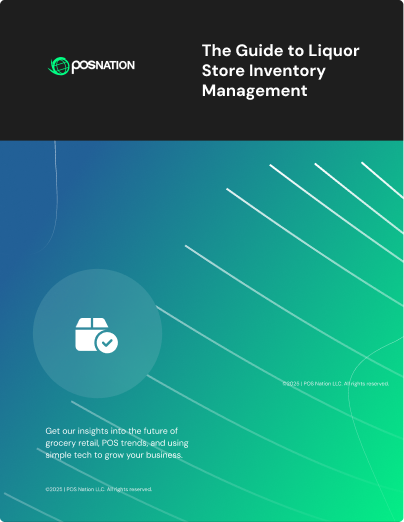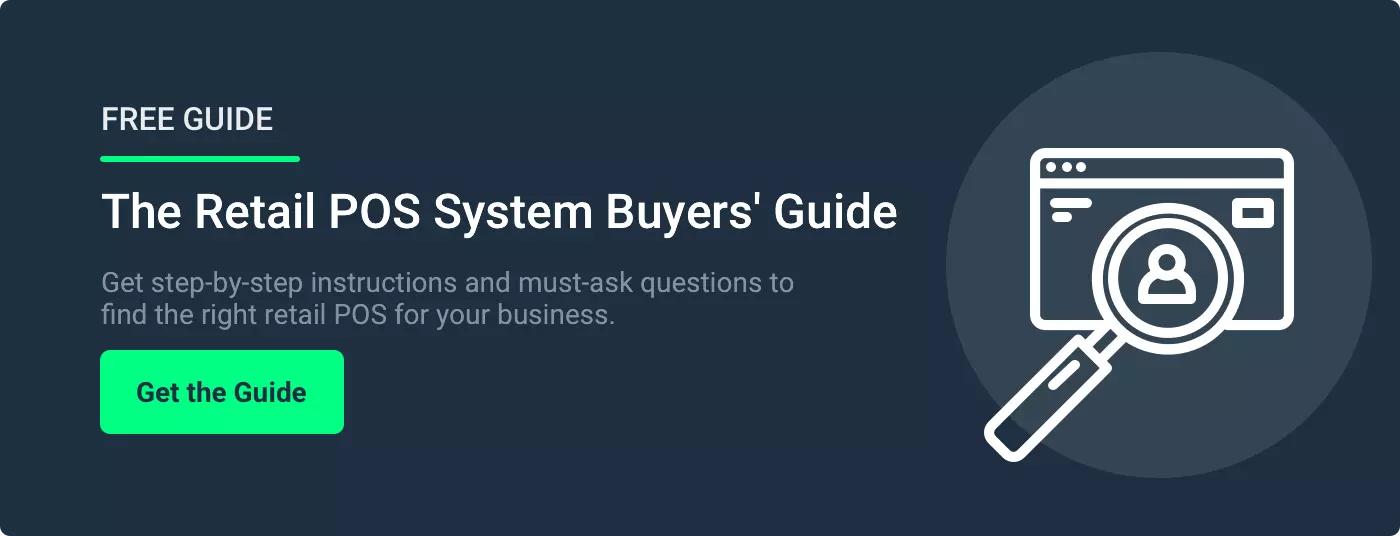Opening your own retail store is scary and thrilling all at once. You’ve taken your time creating a business plan that will help you succeed and you’ve likely trained or learned a lot about the business of being in business.
One of the easier, quicker ways to get your business up and running is with sole proprietorship.
Starting small is a good way to test the viability of your business for future growth, and if you don’t intend on making your business your full-time job, a sole proprietorship will provide the flexibility you need.
So, how do you know if a sole proprietorship is right for you? In this blog, we’ll share some benefits and challenges that come with this business model, examples of sole proprietorship in retail, and discuss four tools you need to succeed — including a point of sale system that will help your business thrive.
Examples of Sole Proprietorship in Retail
A sole proprietor is someone who owns an unincorporated business by themselves. Under this business model, all liabilities and financial obligations belong to the single owner of the business, and according to Wolters Kluwer, it’s one of the simplest and most common models in the U.S.
Many new retailers choose sole proprietorship for the administrative ease and flexibility it provides. You make your own hours, you choose your days off, there are no corporate income taxes, etc.
Related Read: 104 Small Business Resources & Tools You Need This Year
So what’s the difference between a sole proprietorship and an LLC? The biggest difference is that with an LLC, you have limited liability for the business' debts and obligations, whereas, in a sole proprietorship, the business's liabilities and obligations fall to you personally in the event of a lawsuit or debt collection.
Key Benefits of Sole Proprietorship for Retailers
There are several advantages and challenges that come with a sole proprietorship. Let’s start with the good parts.
Some of the advantages of owning a sole proprietorship include:
- Easier startup and less paperwork
- Minimal legal formalities
- Fewer requirements for business taxes
- Straightforward banking
- Fewer registration fees
- Complete control over decision-making
- Flexibility
- Business income and expenses are reported on personal tax returns
- Easier to dissolve
Ultimately, it doesn’t make sense to gather a board of directors or establish a C-suite if you’re a one-person operation. You can call all the shots without the red tape.
However, no solution is without its downsides! Let’s look at some of the challenges associated with operating a sole proprietorship:
- You and your business are inseparable entities, meaning you bear personal responsibility for all debts, liabilities, and legal obligations incurred by the business.
- It’s harder to secure financing or attract investors.
- The business’s existence is tied to you, so there is limited continuity and transferability/it’s harder to sell off.
While sole proprietorships are easy to set up, that ease may come at the expense of certain protections you would get through an LLC or incorporated business entity. If you prefer those protections, you may want to reconsider sole proprietorship.
Related reading: [GUIDE] How to Open a Small Grocery Store in 8 Steps
How To Determine if Sole Proprietorship Is Right for You
Determining if a sole proprietorship is right for you depends on your comfort level and what you envision for the future of your retail store.
Type of business: If your business operates on a smaller scale without complex operations, a sole proprietorship could be a fitting choice. Independent consultants, small retail owners, and freelancers often opt for this structure. However, businesses that face higher risks, demand significant investments, or necessitate multiple owners may find partnerships or corporations more suitable alternatives.
Liability concerns: You have to be comfortable with having unlimited personal liability for any debts or legal obligations incurred by your business. Under an LLC, there are protections that keep creditors from seizing your personal assets (in most cases) and prevent people from suing you personally for business-related problems.
Growth plans: With limited access to capital, growth may be difficult. If you have big, rapid growth plans, this may not be for you.
Essential Sole Proprietorship Tools
Before you open up shop, make sure you have the right tools in your arsenal. These tools will help streamline business operations, maintain inventory and finances, promote your business, and more.
Let’s explore some of the tools you’ll need for your business.
Point of sale (POS) software: A reliable POS system is critical for operating a smooth, efficient retail business. From payments to inventory to barcodes, your POS will keep track of it all. You can also use a modern point of sale system to mange reporting, loyalty programs, customer data, and more.
POS Nation offers a top-tier point of sale system for small retailers. A few key features include over 55 pre-built reports, streamlined inventory management, easy integrations, employee management, customer loyalty programs, and more. Watch Tracy Ann’s Events story to learn how POS Nation helped her shop grow.
Accounting system: Keep track of your finances with an accounting system that’s easy to use and understand. You can also integrate your accounting solution with your POS system for robust reporting.
Some of the top tools on the market today include Quickbooks, Xero, FreshBooks, and Wave.
Customer Relationship Management (CRM) tool: Improve your marketing efforts with a CRM that helps you keep track of your customers. You can track customer data, manage loyalty programs, generate marketing emails, and more.
Top CRMs include HubSpot and Zapier, but you can also use a point of sale solution like POS Nation with built-in loyalty programs to manage all of this in one dashboard.
Social media tools: Most modern businesses need a social media presence. Sign up for the platforms that make the most sense for your audience, and then create a content calendar for posts. After that, schedule your posts using a scheduling tool. Set it and forget it (but don’t forget to interact with your audience organically too!)!
Some of the best scheduling tools include Hootsuite, Buffer, HubSpot, and Loomly.
Using these tools, you’ll keep your business running smoothly and see customers coming through the door.
Retail Sole Proprietorship Examples
Not sure if your retail shop falls under sole proprietorship? Here are a few examples of business types that often fall under the sole proprietorship umbrella:
- Bakery
- Flower shop
- Convenience store
- Boutique
- Grocery store
- Butcher shop
- Cell phone repair shop
- Cigar/vape shop
If you plan to run your store alone or with the help of a small team, a sole proprietorship may be worth considering. However, if you want to expand or build a larger chain of stores, you may want to explore a different business structure.
Consult with a business advisor or tax expert for more advice on which business structure is right for you.
Create Retail Success With the Right POS System
If you’re ready to open a retail shop with less paperwork, a flexible schedule, and fewer administrative hurdles, sole proprietorship is right for you. However, if you’re not comfortable with the liabilities that fall on you if something goes wrong, you may consider looking into becoming an LLC.
Either way, your point of sale solution is the most important tool you’ll need to succeed. Think of it as your personal assistant that keeps track of inventory, reordering, sales, profits, losses, customers, and more.
At POS Nation, we help thousands of solopreneurs like you achieve their dreams of retail store success with our pre-built reports, 24/7 customer service, demand forecasting, and employee management.
Schedule a demo today to see how POS Nation can help your new retail shop succeed.







 by Graham Hoffman
by Graham Hoffman

 by Brian Sullivan
by Brian Sullivan


 by Spence Hoffman
by Spence Hoffman